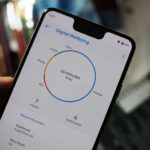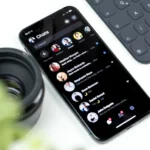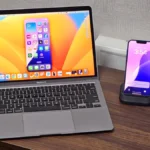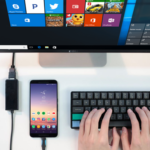To assist you in making a sound decision, we have evaluated the best mobile carrier for you and determined which one will suit your needs.
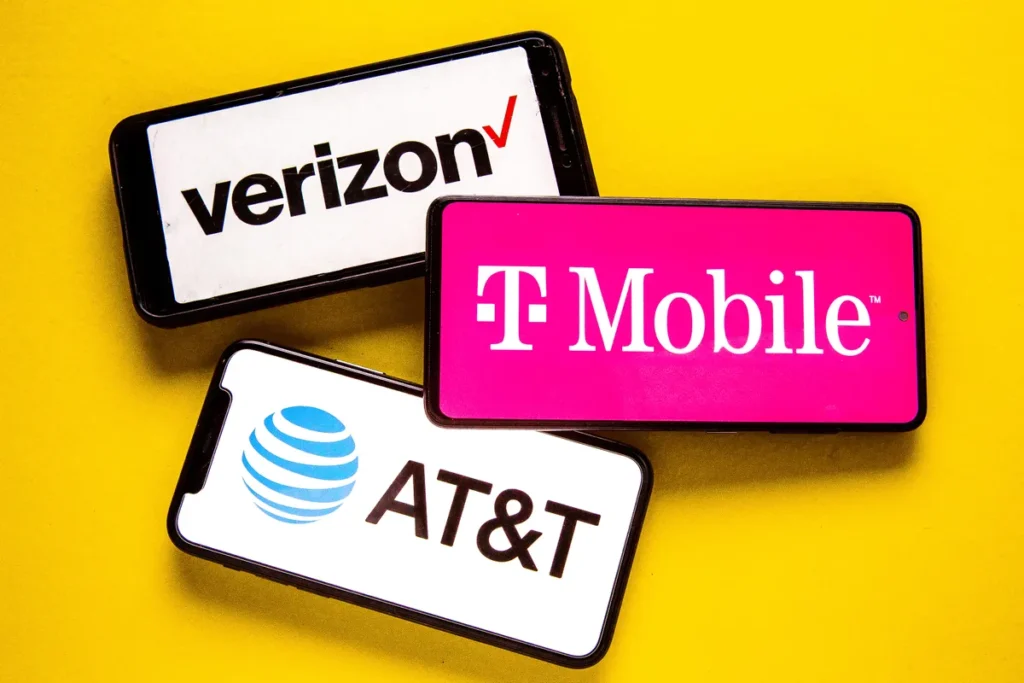
In the United States, there are just three primary networks available – Verizon Wireless, T-Mobile and AT&T.
Smaller carriers typically offer enhanced services purchased through leases on these networks. However, determining which network is right for you depends on individual needs and requirements.
AT&T
Despite not having the biggest network or fastest speeds, AT&T is still America’s largest phone carrier when it comes to subscribers.
The company excels in providing affordable prepaid plans, appealing bundles, and generous discounts. In some cases, with its just-right pricing for a good enough service offering – that’s all you need!
Although it may be the optimal choice in certain regions, when evaluating nationwide service as a whole, the network only adequately caters to numerous minor towns and rural counties.
Similar to T-Mobile, individuals who prioritize unlocked phones may find AT&T to be a favorable option. However, when it pertains to overseas trips, their expenses are akin to Verizon’s pricing.
T-Mobile
In the past, T-Mobile’s coverage was inconsistent and mostly confined to urban areas and heavily populated suburbs.
While city dwellers enjoyed exceptional speed and functionality, those traveling off-the-beaten-path or non-interstate routes could not rely on consistent phone service.
T-Mobile can now offer stiff competition against Verizon in numerous rural areas across the nation – and occasionally, it even boasts a more robust network.
According to PCMag’s 2022 assessment, T-Mobile emerged as the country’s most potent network owing primarily to its early rollout of 5G technology which enabled faster connectivity for countless subscribers.
Earlier, T-Mobile used to challenge Verizon and AT&T by offering cheaper rates. However, presently with a similar network as the other two service providers, the prices of T-Mobile are more or less equivalent.
If you prefer purchasing unlocked phones, T-Mobile is the top choice because of its flexibility in transferring your SIM from one device to another.
However, if you buy directly from them, it will still be carrier-locked. Additionally, they accommodate Mobile Virtual Network Operators such as Google Fi and Red Pocket who offer access to T-Mobile’s network at a lower cost.
T-Mobile’s non-prepaid plans now include international travel to more than 210 countries, with unlimited text and abundant data.
Calls are charged at a reasonable rate of 25 cents per minute, while their pricing for international calling is much lower than Verizon or AT&T.
If you frequently venture outside the U.S., T-Mobile should be your go-to carrier – as long as you limit phone usage accordingly, it won’t take too big a toll on your finances.
Verizon
Unlimited data plans, discounts for multiple lines, home internet bundles, and 5G speeds are now available from all carriers.
Prices vary to stay competitive; thus the days when one was significantly more expensive than another have passed. Verizon’s basic rates remain slightly higher initially but come closer as you accumulate additional benefits.
For quite some time, Verizon has maintained a vast network with towers spanning across the most extensive land area. Historically, this implied that in various rural regions of the country, their network was solely accessible.
Fortunately, after T-Mobile acquired Sprint; In zones where they formerly had a monopoly entrenched now have competition posed against them by other service providers.
Nevertheless choosing Verizon may still be your best option if you reside or frequently journey to distant areas due to its massive and dependable connectivity within such locations.
Verizon, before upgrading its network to 4G LTE and 5G technology, operated on a CDMA system that wasn’t compatible with GSM.
This made switching SIM cards between devices impossible until the removal of their 3G system. However, Verizon still has more restricted requirements regarding which phone models can connect to their network than other carriers do.
In most cases, purchasing an unlocked phone is a more cost-effective option than going through a carrier. However, Verizon’s network often has limited compatibility with different devices.
Conclusion
Numerous factors should be considered when selecting the most suitable mobile carrier for you. Some of these include your residency, travel frequency, utilization of mobile data to stream music and movies, as well as preference for unlocked phones.
No company can assert that they are the top carrier in the US across all domains and regions. It’s recommended to test a carrier’s network before committing yourself to lengthy agreements.


